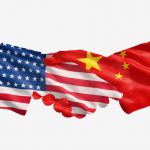Foreign Policy says:
Rather than undercutting U.S. influence in the region, the result of China's post-crisis assertiveness has been to push most of its neighbors closer towards Washington. Yet Beijing seems tone-deaf to the tensions it is creating, falling back instead on complaintsabout U.S. containment and trying to resurrect the specter of Japanese militarism. China's leaders should be asking themselves: why has every Asian leader, with the possible exception of Kim Jong Un, welcomed the pivot? The answer: in the last few years, Washington has become more relevant, not less, to Asia's future.On the economic front, Beijing is taking aim at another pillar of U.S. power: the dominance of the dollar. China is putting in place anambitious long-term plan to turn the renminbi into one of the main international currencies. Chinese leaders often discuss the project in technical terms, about reducing currency risk for their companies, but they also do little to hide their frustrationwith the dollar's privileged status. One Chinese academic even likensthe importance of the project to turn the renminbi into a major reserve currency to China's acquisition of a nuclear weapon in the 1960s.
The politics of the currency plan are themselves an interesting sidebar to the over-hyping of Chinese influence. While American politicians have been worrying loudly about the risk of China owning so many Treasury bonds ("How do you deal toughly with your banker?" Hillary Clinton asked at a private lunch with then Australian Prime Minister Kevin Rudd in March 2009) China has been fretting about how little leverage its U.S. bond holdings give it. The desire to dethrone the dollar is partly rooted in China's frustration that it has absolutely no influence over the Federal Reserve. And yet it has few options other than buying American debt, because the U.S. Treasury bond market is the largest and most liquid in the world. "We hate you guys!" Luo Ping, a senior Chinese banking official admitted in 2009, only half-jokingly. "Once you start issuing $1 trillion-$2 trillion [in new debt]," he said, the dollar will depreciate, "but there is nothing much we can do."










